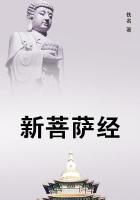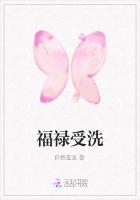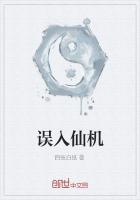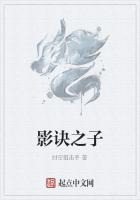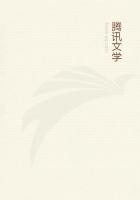The day of the fair was dull and gloomy, an exact counterpart of the previous Saturday. Owing to some cause I did not go into the fair till past one o'clock, and then seeing neither immense hogs nor immense men I concluded that the gents of Wolverhampton had been there, and after purchasing the larger porkers had departed with their bargains to their native district. After sauntering about a little time I returned home. After dinner I went again into the fair along with my wife; the stock business had long been over, but I observed more stalls than in the morning, and a far greater throng, for the country people for miles round had poured into the little town. By a stall on which were some poor legs and shoulders of mutton I perceived the English butcher, whom the Welsh one had attempted to slaughter. I recognised him by a patch which he wore on his cheek. My wife and I went up and inquired how he was. He said that he still felt poorly, but that he hoped he should get round. I asked him if he remembered me; and received for answer that he remembered having seen me when the examination took place into "his matter." I then inquired what had become of his antagonist and was told that he was in prison awaiting his trial. I gathered from him that he was a native of the Southdown country and a shepherd by profession; that he had been engaged by the squire of Porkington in Shropshire to look after his sheep, and that he had lived there a year or two, but becoming tired of his situation he had come to Llangollen, where he had married a Welshwoman and set up as a butcher. We told him that as he was our countryman we should be happy to deal with him sometimes; he, however, received the information with perfect apathy, never so much as saying "thank you." He was a tall lanikin figure with a pair of large, lack-lustre staring eyes, and upon the whole appeared to be good for very little. Leaving him we went some way up the principal street; presently my wife turned into a shop, and I observing a little bookstall went up to it and began to inspect the books. They were chiefly in Welsh. Seeing a kind of chap book, which bore on its title-page the name of Twm O'r Nant, I took it up. It was called Y Llwyn Celyn or the Holy Grove, and contained the life and one of the interludes of Tom O' the Dingle or Thomas Edwards. It purported to be the first of four numbers, each of which amongst other things was to contain one of his interludes. The price, of the number was one shilling. Iquestioned the man of the stall about the other numbers, but found that this was the only one which he possessed. Eager, however, to read an interlude of the celebrated Tom, I purchased it and turned away from the stall. Scarcely had I done so when I saw a wild-looking woman with two wild children looking at me. The woman curtseyed to me, and I thought I recognised the elder of the two Irish females whom I had seen in the tent on the green meadow near Chester. I was going to address her, but just then my wife called to me from the shop and I went to her, and when I returned to look for the woman she and her children had disappeared, and though Isearched about for her I could not see her, for which I was sorry, as I wished very much to have some conversation with her about the ways of the Irish wanderers. I was thinking of going to look for her up "Paddy's dingle," but my wife meeting me, begged me to go home with her, as it was getting late. So I went home with my better half, bearing my late literary acquisition in my hand.
That night I sat up very late reading the life of Twm O'r Nant, written by himself in choice Welsh, and his interlude which was styled "Cyfoeth a Thylody; or, Riches and Poverty." The life I had read in my boyhood in an old Welsh magazine, and I now read it again with great zest, and no wonder, as it is probably the most remarkable autobiography ever penned. The interlude I had never seen before, nor indeed any of the dramatic pieces of Twm O'r Nant, though I had frequently wished to procure some of them - so I read the present one with great eagerness. Of the life I shall give some account and also some extracts from it, which will enable the reader to judge of Tom's personal character, and also an extract of the interlude, from which the reader may form a tolerably correct idea of the poetical powers of him whom his countrymen delight to call "the Welsh Shakespear."

